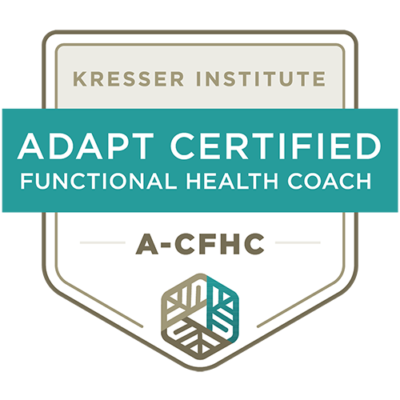The COVID-19 (C19) pandemic has raised concern among healthcare workers. These workers include CNAs, nurses, therapists, and doctors. C19 has forced them to pivot in their roles within a short time to meet the demand placed on them.
It has become the gateway for deep, profound feelings, emotions, and sensations that force many of them to deal with higher stress and anxiety. For many involved in healthcare, the impact of C19 has created a drawn-out experience of vulnerability. And, with it the potential for post-traumatic stress that will likely carry long-term consequences.
And, it’s clear for many that getting through the changing healthcare environment will not be easy. The primary need is on learning new coping mechanisms, reducing burnout, and developing steps to manage stress.
Key contributors to stress are:
1. Uncertainty
2. A sense of ‘burnout’
3. Heavy/Increased workload
The greatest uncertainty lies with the fear workers will become infected and spread the C19 virus to loved ones. They may spend less time at home and are dealing with more responsibility. Childcare and home-schoolers present new challenges. Home-based eldercare or professional nursing homes, and social isolation add to these challenges. At work, there are concerns over job loss or redeployment to an undesirable work location. The biggest challenge with uncertainty, as they work through C19 is getting the reassurance that “things are going to be okay”.
Burnout is another major concern. Healthcare workers exposed to prolonged stressful settings may have intense feelings of burnout. In a survey of 1,119 healthcare workers, 76% reported burnout. Before C19, managing stress with diet, sleep, exercise, and mindfulness meditation was essential. Today, lowering stress and anxiety via these practices is still beneficial but limited.
Finding balance at work has become nearly impossible.
Many internal and external support systems have not been able to meet the needs of healthcare workers. Hospitals that deal with the overwhelm see demands placed on them such as longer work hours, limited staff, and extreme conditions. In these stressful moment’s workers are still expected to remain active, alert, and supportive of their peers and patients.
“Healthcare workers are also experiencing conditions that have been compared to a war zone, continuously witnessing the direct effects of the pandemic as it spreads throughout communities.”
Unfortunately, many workers have experienced a drop in their work performance. Of the 1,119 healthcare workers surveyed, a third feel like they’ve made more mistakes at work. Approximately half experienced mental health issues and have considered quitting or changing careers.
Healthy ways to cope should include steps toward greater care of the body. A healthy diet increased water intake and limited alcohol intake are important. Getting adequate sleep within 7-8 hours each night is crucial. A key component of self-care includes connection with others and not feeling alone or isolated. Also, by showing respect for the differences that arise in yourself, patients, and peers.
Workers that engage in self-care should encourage others toward greater awareness of self-care.
Partnering with co-workers in a “Buddy System” can help support each other and add visibility on stress, activity, and well-being. While at home, try to focus on maintaining a consistent exercise routine, get outdoors often, and do things that bring enjoyment.
Recognizing burnout may not be clear and ignored in the early stages. Signs include:
- Sadness, depression, or apathy
- Easily frustrated
- Blaming of others, irritability
- Lacking feelings, indifferent
- Isolation or disconnection from others
- Poor self-care (hygiene)
- Tired, exhausted or overwhelmed
- Feeling like a failure
- Feeling like nothing you can do will help
- Feeling like you are not doing your job well
- Feeling like you need alcohol/drugs to cope
- Feeling uncertain, nervous, or anxious
- Feeling helpless or powerless
- Lacking motivation
- Having trouble sleeping
- Having trouble concentrating
If you’re experiencing stress and burnout is a concern, a health coach can support your self-care effort and help you get stress under control.
Interested in learning more? These resources provide additional information:
Lagasse, J. (n.d.). Healthcare workers experiencing burnout, stress due to COVID-19 pandemic. Healthcare Finance News. Retrieved December 15, 2020, from https://www.healthcarefinancenews.com/news/healthcare-workers-experiencing-burnout-stress-due-covid-19-pandemic
Emergency Responders: Tips for taking care of yourself. (2018, March 19). Emergency Preparedness and Response. https://emergency.cdc.gov/coping/responders.asp
Strategies to Support the Health and Well-being of Clinicians During the COVID-19 Outbreak. (n.d.). National Academies of Medicine. Retrieved December 15, 2020, from https://nam.edu/initiatives/clinician-resilience-and-well-being/clinician-well-being-strategies-during-covid-19/
Caring for clinician well-being during the COVID-19 pandemic.
https://www.asam.org/docs/default-source/covid-19/5-tf_clinician-wellbeing-during-the-covid-19-pandemic_final_updated-10302020.pdf
Center for the Study of Traumatic Stress, Uniformed Services University. Sustaining the Well-Being of Healthcare Personnel during Infectious Disease Outbreaks: https://www.cstsonline.org/assets/media/documents/CSTS_FS_Sustaining_Well_Being_Healthcare_Personnel_during.pdf
Coronavirus Disease 2019 (COVID-19). (2020, February 11). Centers for Disease Control and Prevention. https://www.cdc.gov/coronavirus/2019-ncov/hcp/mental-health-healthcare.html?CDC_AA_refVal=https%253A%252F%252Fwww.cdc.gov%252Fcoronavirus%252F2019-ncov%252Fcommunity%252Fmental-health-healthcare.html
